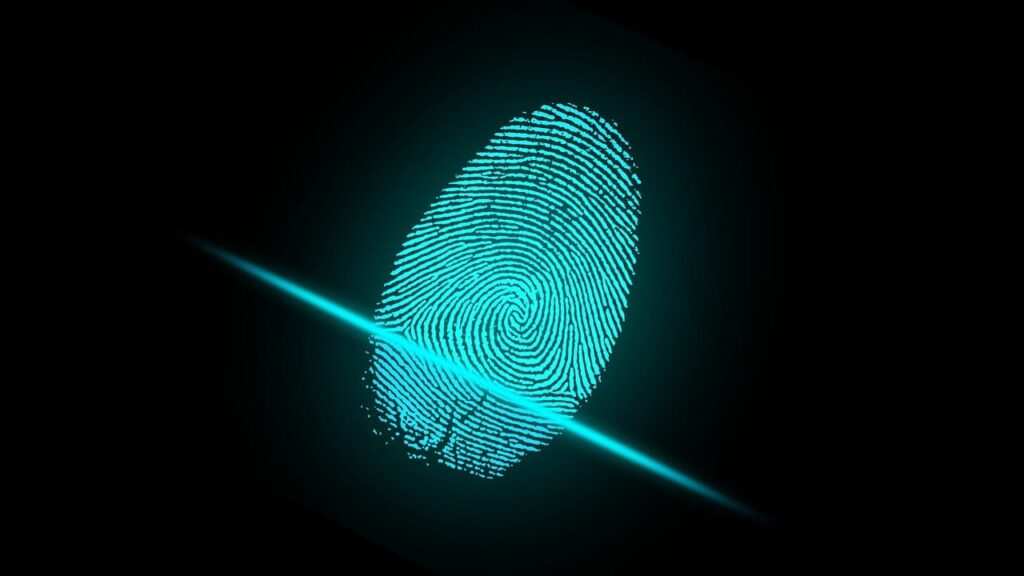Forensic psychology merges the principles of psychology with legal matters to understand criminal behavior and assist in criminal investigations. This field plays a vital role in the criminal justice system, providing expert analysis and insight into the psychological aspects of criminal cases. As the demand for professionals with forensic psychology degrees continues to grow, pursuing a career in this field offers promising opportunities for those interested in making a difference within the legal system.
In this guide, we’ll discuss the different types of forensic psychology degrees, online degree options, the steps to becoming a forensic psychologist, and the different job opportunities and career paths in forensic psychology.
Schools Offering Forensic Psychology Degrees

Forensic Psychology from SNHU
BS in Forensic Psychology, MS in Forensic Psychology

Forensic Psychology Degrees from Walden
BS in Forensic Psychology, MS in Forensic Psychology, PhD in Forensic Psychology

Forensic Psychology Degrees from LSU
BS in Forensic Psychology
Types of Forensic Psychology Degrees
There are various degree levels available for those interested in forensic psychology, each offering distinct career opportunities and areas of focus.
Bachelor’s Degree in Forensic Psychology
Typically a four-year program, a bachelor’s degree in forensic psychology provides students with a foundation in psychological theories, research methods, and the application of these concepts in the legal system. Coursework often includes subjects such as abnormal psychology, criminal behavior, and ethics in forensic psychology. Graduates with a bachelor’s degree can pursue entry-level jobs in law enforcement, social services, or mental health facilities. However, many choose to further their education with a master’s or doctoral degree to access more specialized roles.
Master’s Degree in Forensic Psychology
A master’s degree program in forensic psychology deepens students’ understanding of the field and offers opportunities for specialization in areas like child and family forensic psychology, criminal behavior, or forensic assessment. This advanced degree typically takes two years to complete and opens up a wider range of career prospects, including roles in clinical settings, private practice, or consulting for law enforcement agencies. A master’s degree is often the minimum requirement for licensure as a practicing forensic psychologist.
Doctoral Degree in Forensic Psychology
A doctoral degree in forensic psychology is the highest level of education in the field, focusing on advanced research and practice skills. These programs often take four to six years to complete, depending on the student’s research focus and previous education. Doctoral degrees pave the way for the most specialized career opportunities, such as expert witness roles, university professorships, or leadership positions in research institutions. Additionally, a doctoral degree is usually required for licensure as a practicing psychologist in most states.
Forensic Psychology Degree Online: Benefits and Challenges
Pursuing a forensic psychology degree online can offer numerous benefits, but it also comes with its own set of challenges that prospective students should consider.
The advantages of pursuing a forensic psychology degree online include flexibility in scheduling and pacing, allowing students to balance their studies with work, family, or other commitments. Online degree programs also provide accessibility for individuals with geographical or time constraints, eliminating the need for long commutes or relocation. Additionally, online programs often have potential cost savings compared to traditional on-campus programs, as students may save on housing, transportation, and other expenses.
However, there are also challenges and considerations for online programs. Ensuring the quality and accreditation of an online program is crucial, as not all online degrees are created equal. Prospective students must research the program’s accreditation status, faculty qualifications, and course content. Adapting to an online learning environment can be challenging for some students, as it requires self-motivation, discipline, and effective time management skills. Lastly, access to appropriate resources and support, such as academic advising, library resources, and technical support, is essential for a successful online learning experience. Ensure the program you choose offers these resources and support services to help you succeed in your studies.

Considerations When Choosing a Forensic Psychology Degree Program
When selecting a forensic psychology degree program, it is essential to consider various factors to ensure the program aligns with your career goals and personal needs.
Accreditation is crucial, as it indicates that the program meets established quality standards. Ensure the program is accredited by a recognized regional or national accrediting body, such as the American Psychological Association (APA) or the Council for Higher Education Accreditation (CHEA).
Another vital aspect is the program curriculum and faculty expertise. Review the course offerings and research interests of faculty members to ensure the program covers your areas of interest and that faculty members have experience in the field of forensic psychology.
Consider the availability of internships and practicum opportunities within the program. Hands-on experience in real-world settings is invaluable for developing practical skills and building a professional network. Look for programs that offer internship opportunities in law enforcement agencies, correctional facilities, or mental health institutions.
Lastly, consider the flexibility of scheduling offered by the program. For individuals with work or family commitments, part-time, full-time, or online options can make a significant difference in your ability to complete the degree. Ensure the program you choose offers the level of flexibility you need to balance your education with other responsibilities.
How To Become a Forensic Psychologist
Becoming a forensic psychologist requires a strong educational foundation and extensive training, ensuring the development of crucial knowledge and skills necessary for this specialized profession. Education and training equip forensic psychologists with the expertise needed to navigate complex legal and psychological issues and to contribute effectively to the legal system.
Educational Requirements
Embarking on a career as a forensic psychologist begins with pursuing a bachelor’s degree in psychology or a related field. The coursework during this stage provides foundational knowledge in psychological theories, research methods, and statistics. Developing skills in critical thinking, communication, and ethical decision-making is crucial. Additionally, participating in internships and research experiences enables students to gain practical exposure to the field and enhance their understanding of psychological principles in real-world settings.
After obtaining a bachelor’s degree, aspiring forensic psychologists typically pursue a master’s degree in forensic psychology. This advanced program delves deeper into the field, exploring the intersection of psychology and law. Students learn about various areas of specialization, such as criminal, civil, and family forensic psychology. Master’s programs often provide research opportunities and internships that allow students to apply their knowledge in practical settings and gain valuable experience working with diverse populations.
While a master’s degree may be sufficient for some career paths in forensic psychology, many professionals opt to pursue a doctoral degree for further specialization and expertise. Doctoral programs in psychology or forensic psychology generally offer two options: a Doctor of Philosophy (PhD) or a Doctor of Psychology (PsyD). The main difference between these programs lies in their focus: Ph.D. programs emphasize research and the development of new knowledge, whereas PsyD programs prioritize the application of psychological principles in clinical settings. Regardless of the chosen path, doctoral students engage in coursework, research, and clinical training to develop advanced skills in psychological assessment, intervention, and consultation. Completing a dissertation research project on a forensic psychology topic further solidifies their expertise in the field.

Licensure and Certification
Becoming a licensed psychologist is an essential step in the career of a forensic psychologist. Licensure requirements vary by state, but generally include completing a doctoral degree, obtaining a specific number of supervised clinical hours, and passing a comprehensive examination. It is important for aspiring forensic psychologists to familiarize themselves with their state’s specific licensure requirements and follow the necessary steps to obtain a psychology license.
While obtaining a license is mandatory, pursuing board certification in forensic psychology is voluntary but highly recommended. The American Board of Forensic Psychology (ABFP), a member of the American Board of Professional Psychology, offers board certification for qualified forensic psychologists. Eligibility requirements include holding a doctoral degree, having a valid psychology license, completing a minimum number of hours in forensic psychology practice, and successfully passing a written and oral examination.
Becoming a board-certified forensic psychologist demonstrates a professional’s commitment to maintaining the highest standards in the field, showcasing their advanced knowledge, skills, and expertise. This certification can lead to increased credibility, professional recognition, and career advancement opportunities, making it a valuable investment for those seeking to excel in the field of forensic psychology.
Practical Experience and Training
Acquiring clinical experience is a critical component in the development of forensic psychologists. To obtain licensure, professionals must complete a specific number of supervised clinical hours, as required by their state’s regulations. These hours expose them to various clinical settings, such as hospitals, prisons, and courts, where they can apply their knowledge and skills in real-world situations.
Postdoctoral fellowships and internships provide additional opportunities for specialized training and experience in forensic psychology. These positions enable professionals to further hone their skills in assessment, intervention, and consultation while working alongside experienced mentors. Pursuing such opportunities can greatly enhance a forensic psychologist’s expertise and career prospects.
Continuing education and professional development are essential for maintaining licensure and certification. Requirements for ongoing education vary by state and certifying organization, but typically involve completing a specific number of continuing education units (CEUs) within a designated timeframe. Numerous resources and organizations, such as the American Psychological Association and the American Academy of Forensic Psychology, offer training programs, workshops, and conferences to help forensic psychologists stay current with the latest developments in the field and maintain their professional competencies.

Job Opportunities and Career Paths
Forensic psychology offers a diverse range of job opportunities, with professionals working in various settings such as hospitals, prisons, courts, and private practice. Within the field, there are several specializations to consider, including criminal, civil, and family forensic psychology. Each specialization comes with its unique challenges and rewards, allowing forensic psychologists to tailor their careers according to their interests and expertise.
The role of a forensic psychologist differs across professional settings, with specific responsibilities and tasks depending on the context. For instance, in a hospital setting, a forensic psychologist might conduct assessments and provide treatment for mentally ill offenders, while in a court setting, they may offer expert testimony and consultation on legal cases. Regardless of the setting, forensic psychologists must possess strong analytical, communication, and interpersonal skills, as well as a deep understanding of the legal system and psychological principles.
Career advancement in forensic psychology often involves networking and engaging with professional associations, such as the American Psychology-Law Society and the International Association for Correctional and Forensic Psychology. Attending conferences, workshops, and training programs can help professionals expand their knowledge, stay current with industry trends, and build relationships with peers and mentors. Additionally, developing a strong reputation through publications, presentations, and specialized certifications can contribute to career growth and increased opportunities within the field of forensic psychology.
Embark on Your Forensic Psychology Journey
Forensic psychology is an exciting and rewarding field that combines psychology principles with legal matters. With various degree options available, including bachelor’s, master’s, and doctoral degrees, individuals can pursue a career path that aligns with their interests and goals. Factors to consider when choosing a degree program include accreditation, curriculum, internship opportunities, and scheduling flexibility, such as online degree options.
The process of becoming a forensic psychologist involves obtaining a bachelor’s degree, followed by a master’s or doctoral degree in forensic psychology, completing supervised clinical hours, and pursuing licensure and board certification. It’s essential to emphasize the importance of education, training, and commitment to succeeding in this rewarding field. By following this path, you can unlock the potential for a fulfilling and impactful career in forensic psychology. If you’re considering a career in forensic psychology, explore our educational resources and start planning your journey today.
